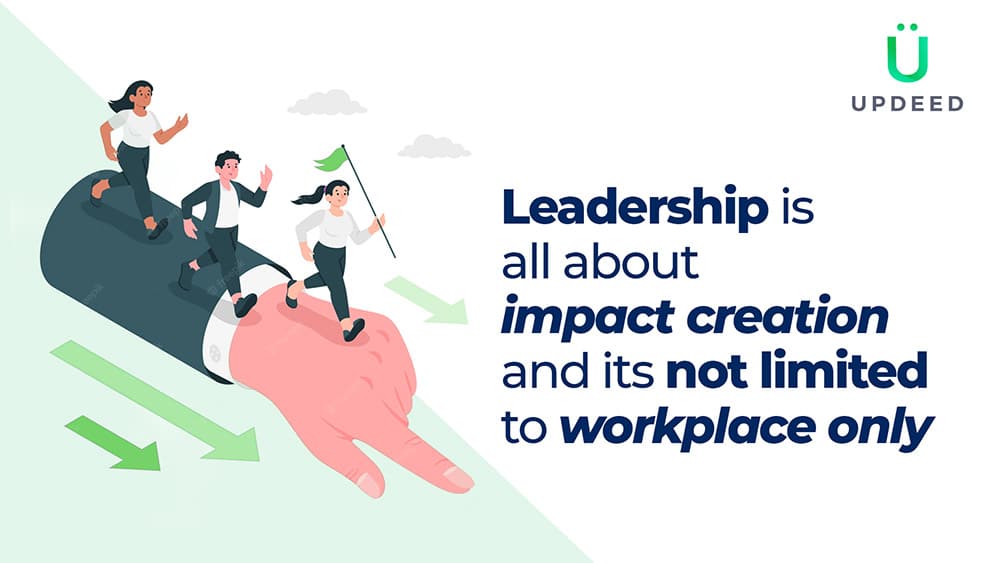Leadership is all about impact creation, not limited to the workplace only
The effects of leaders on their organisations, stakeholders, and the environment are astounding. One of the most crucial responsibilities for leaders is to empower those around them so that they may also have a good influence and create something amazing alongside their boss.
Therefore, executives must be able to develop organisational cultures, structures, and procedures that support such empowerment and the sustained, long-term accomplishments that come with it.

So, create an impact
The capacity to influence is strongly related to the capacity to have an impact. Even though they occasionally overlap, influence and impact differ. To influence someone is to persuade them to accept our opinions, advice, or recommendations. This may occur due to peer pressure, reasoning, facts, behaviours, and emotions, to name a few.
You have impacted an individual when you persuade them to adopt a new idea, viewpoint, course of action, or behaviour.
However, many believe that titles, positions, money, and fame are the only factors that matter in leadership. Leadership, however, is something other than a real position or title. Also, it is not at all related to a workplace only, it can be anything from your social media accounts to society’s associations.
Actually, it has to do with your behaviour and the example you create for others. Leadership is about having an impact on others; it’s about having the power to persuade people.
What to do
When you lead without formal authority, you want people to follow you and do what you say, not because you’re in charge and telling them to. In a sense, persuading people to agree with your views and why they should be a part of your action plan is similar to selling. Not only in the workplace, but wherever you have a presence, it’s important to increase your influencing sphere. This involves:
Establishing strong relationships: You undoubtedly remember assisting a coworker because you get along well with them at work or because you consider them a friend. This kind of personal capital is crucial when persuading without formal authority since people are more likely to adopt the viewpoints of someone they admire. Others are far more willing to assist you in achieving your goals when there is mutual trust and respect.
Leverage your user base: At your workplace, on social media accounts, or with people reading in your society, you might have established good relationships with them. It’s important to bank upon such relationships to get the information that is required or to make co-workers do what you wish them to do.
Build credibility: People need to believe in you and your capacity to do well in order for you to have an impact on them. This entails demonstrating that you’ve done your study and are aware of the details and the effects your thoughts and actions will have. People want to collaborate with you if you can prove your credibility and excellence.
Show your team player spirit: Spend some time offering assistance when requested. People are more willing to support you when you need it if you show them that you can work well with others as a team. Just keep in mind that your original work should always come first. Both of these things can occasionally be difficult for women. When it looks as though the world or their workplace is stacked against them, women may feel pressured to defend their interests and safeguard their work.
Ready to make a positive impact in the world?
UPDEED is the place for you. Our free and open platform is filled with inspiring stories from individuals and organizations who are making a difference in their communities and beyond. Connect and collaborate with like-minded individuals from around the globe on UPDEED, and discover your own potential to create meaningful change. Join our community and make a difference.





